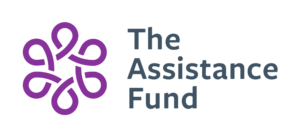
Over the summer, we sat down with Stephanie Marshall, Director of Advocacy from The Assistance Fund to learn more about the organization and their priorities for the future of value assessment.
Tell us a little about your organization.
The Assistance Fund (TAF) is an independent 501(c)3 patient assistance organization. We help patients and families facing high medical costs by providing financial assistance for copayments, coinsurance, deductibles, and other health-related expenses. We currently manage over 70 disease programs. Since our founding in 2009, we have helped nearly 135,000 children and adults access the treatment they need to stay healthy or manage a life-threatening, chronic, or rare disease.
We recognize that too many patients are unable to bridge the gap between what treatments cost and what they can afford. By providing financial assistance for their out-of-pocket costs for treatment, we provide patients and families peace of mind. We also advocate on patients’ behalf in Washington, D.C. In 2019, The Assistance Fund Opened a Washington office to promote policies that will ensure patients have access to the clinical care, diagnostic testing, therapy, and treatment they require, and, importantly, an out-of-pocket cost within reach, regardless of socioeconomic status.
I joined The Assistance Fund in 2020 to help forge partnerships with patient advocacy organizations and other leading healthcare stakeholders who share our mission of providing people living with life-threatening, chronic, and rare disease access to critical treatment. By bringing our collective expertise together, we can have a greater impact on important policy debates.
Tell us why your organization became and IVI member.
The Assistance Fund believes that patients must be at the center of policy-making efforts, including value assessment. IVI’s commitment to patient-centricity and its innovative approach to measuring value aligns with our organizational values and advocacy goals.
By becoming an IVI member, and joining the Patient Advisory Council, we believe we can help move the conversation about value assessment forward to recognize the true needs of patients and, importantly, ensure that the patient voice is at the center of these important decisions.
What is your organization’s top priority for improving value assessment?
At The Assistance Fund, we put patients at the center of our work, whether it is to highlight their strength and resilience, enhance our customer service through pioneering solutions, or advocate for public policies that will improve access to critical treatments. Patients’ needs are the focus of everything we do.
Our top priority for improving value assessment is to put patients at the center of these important decisions, not only to improve access to critical and lifesaving treatments, but to ensure their needs are incorporated into value assessment.
From your perspective, what is the biggest gap in value assessment, and why?
The Assistance Fund supports patients who are living with serious, and often life-altering diseases, from breast cancer to Duchenne muscular dystrophy to pulmonary fibrosis. These patients and their caregivers must navigate a complex healthcare system to access care, and often experience vast changes in quality of life because of their diagnosis.
Family members often become caregivers and the financial stress of a serious disease can be significant. According to our 2020 patient survey, 87% of respondents indicated that “affording their healthcare” was one of the biggest obstacles to improving their health. The second two most common obstacles were “making lifestyle adjustments to accommodate their medical needs” and “finding a treatment that effectively manages their conditions.” These challenges, which go beyond health outcomes, must be reflected in value assessment.
We recognize that value assessment must reflect the input of a range of stakeholders, including researchers, providers, and payers. Beyond the need for these decisions to be patient-centric, they must include patients as active, and equal, participants. While efforts have been made in recent years to incorporate the patient perspective, more work is needed. Until patient-centric impacts are a routine part of value assessment, the patient experience will remain outside the value assessment arena.
How do you see IVI contributing to advancing patient-centered value assessment?
In all aspects of its work, IVI focuses on authentic patient-centricity. This focus, along with IVI’s commitment to innovation, transparency, and consensus building, results in a fresh and inclusive perspective to defining the future of value assessment in the U.S. and what is needed to advance patient-centered value assessment.
What would you tell other organizations is the value of joining and working with IVI?
In just a few short years, IVI has made a significant and substantive contribution to improving value assessment in health care. By joining and working with IVI, The Assistance Fund has had the opportunity to engage with leading thinkers in value assessment and access cutting-edge information. These opportunities have been invaluable to our own work to ensure patients have access to clinical care, diagnostic testing, therapy, and treatment they require.
